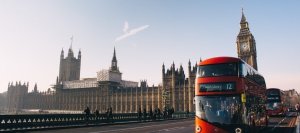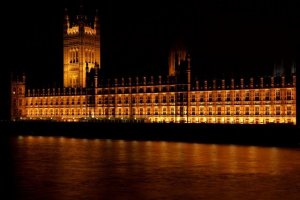- Private Wealth
- Tax & Estate Planning

Longer Reads
The Middle Classes and the Autumn Budget Statement: Fallback, Fail-Safe, Cash-Cow, Taxpayers
Few will envy the Chancellor on Budget day in a weak economic environment, especially now that the UK economy is confirmed to be in a recession.
4 minute read
Published 17 November 2022
Key information
- Specialisms
- Private Wealth
Whatever he announced, Jeremy Hunt would have made few friends today. His plans are easy to attack, and much harder to defend. Most un-aligned commentators will, though, generally welcome the return to economic and fiscal normality (Brownian ‘prudence’, perhaps) inherent in the Chancellor’s approach – preferring that to the high-risk (and in the event fatally de-stabilising) ‘growth budget’ so recently proposed by his predecessor.
Neither Collyer Bristow nor I have any political affiliations, and the reflections in this note are intended to draw out some wider considerations arising from the choices the Chancellor has made about how the increased tax burden is to be borne. Whilst some of the changes to business taxes are undoubtedly noteworthy (especially the ‘windfall’ tax on oil and gas companies), this piece concentrates only on personal taxation.
Given the usual pre-Budget rumours of sweeping tax rises across the board, many taxpayers will be thankful that the changes announced to personal taxation today are as modest as they are. The Chancellor is largely relying on rate freezes and ‘fiscal drag’, as more taxpayers are drawn within the scope of taxation – in some cases, at higher overall effective rates – instead of more obvious headline tax rises. This is nothing new, and successive governments have employed the same tactic for decades, mostly with relatively little scrutiny. There are signs that that, at least, is changing, and MPs and commentators are more attuned to the consequences of fiscal drag, which is to be welcomed.
But, by the freezing of the IHT nil-rate band, the reduction of the CGT annual exemption, the reduced dividend rate allowance, and perhaps most significantly the £125,000 threshold for the 45% rate of income tax, the Chancellor has deliberately targeted the brunt of his changes to personal taxation on what used to be called the professional middle class (now typically described as the ‘AB’ category). These people tend to be highly educated, in well-paid professional or senior managerial jobs, and UK resident and domiciled (so not generally at risk of moving abroad in search of lower taxes). They will have little opportunity to arrange their affairs differently so as to minimise their tax burden. They are, as a group, overwhelmingly the largest contributors to UK taxes, and the least likely to be in receipt of state benefits other than the state pension, to which they will have contributed from a working lifetime’s NIC payments. In common with most of the population, they are likely to use some government-provided services, especially the NHS and schools.
By most accounts, the AB group make up less than 25% of the UK population, but contribute approximately 68% of all income tax revenue. Whilst undeniably affluent in relative terms, they will often not feel, or think of themselves as, ‘wealthy’ in any absolute sense. In fact, their livelihoods are often very sensitive to economic fluctuations, and some may already be feeling anxious about their prospects in the current downturn. Some will think of themselves as being part of the already-‘squeezed middle’.
But as a group, they are – and have always been – essentially, the UK’s fallback, fail-safe, cash-cow, taxpayers of last resort. And as such, it should be no surprise that the Chancellor has looked to them to underwrite the UK’s rather precarious economic position. In contrast, and as one must expect, no political party would support tax rises for the lowest earners, for whom the rising cost of living poses the greatest challenge. One lesson from recent Budget history is that attempts to penalise those who are already vulnerable and marginalised are politically toxic: the ‘bedroom tax’ is just one example, which should be seared on the brain of every would-be Chancellor. The details of Jeremy Hunt’s Budget will be scrutinised in the days to come, and he will be very relieved if he avoids a similar calamity.
There are still risks inherent in increasing taxation on the middle classes. The risks are political, rather than fiscal: this is because the additional tax revenue generated by the Budget’s changes to personal taxation are relatively easy for HM Treasury to estimate with a high degree of confidence (and this of itself should bolster the UK’s credit rating, thus reassuring the bond markets), whilst tax collection should also be straightforward as the scope for avoidance is low, and the AB group is typically well-advised, and largely compliant with its tax obligations.
But they, perhaps more than any other group, will be acutely aware of their increasing tax burden. And their sentiment about whether their taxes provide good value for money may well make or break the next election for any political party: they are unlikely to accept near-Scandinavian levels of taxation whilst being offered poor public services in return. The questions these taxpayers will ask include: can they see their GP when they need to? Are they – or family members – stuck on seemingly endless NHS waiting lists for surgery whilst their quality of life declines from the delay? Does an emergency trip to A&E involve a 12-hour wait for treatment? If needed, will an ambulance arrive within a reasonable time (and not then wait outside A&E for hours)? And do local state schools provide a good quality education for their children? If the answers to enough of these questions are ‘no’, then the government will not be able to count on their electoral support.
They will also be aware of preferential tax regimes for “non-dom” and “non-res” individuals and their trust and company structures, and alert to the fact that “non-dom” taxpayers are usually (or, at least, stereotypically) much wealthier than them. The government (perhaps wisely, for the reasons I summarised here) refrained from any significant – and difficult – changes to the “non-dom” tax regime in this Budget. But perceptions of ‘unfair’ disparities between the taxation of these two groups will only increase as those disparities widen, which could be especially damaging to the government given that the Prime Minister’s wife has herself benefitted from her “non-dom” status.
For many of those adversely affected by this Budget, the credibility of the government will not rest so much on short- to medium-term fiscal stability (which is surely the least that can be expected from any responsible government), as on visible improvements to the experience of public services in the eyes of those who pay most for them.
Some families in this group may be able to afford private healthcare and education – even if economies and sacrifices have to be made elsewhere (though high and rising mortgage interest rates may curtain that). Those options are certainly not available to all, so they would be fortunate in having a choice. But if they consider themselves forced into paying expensive school fees and health insurance premiums, for example, in addition to high and increasing levels of taxation to fund poor services which do not meet their needs and which they no longer feel able to use, many will use their votes to protest.
Political views in this group will vary, though many will doubtless recognise the strong and oft-repeated moral case that those with the broadest shoulders should bear the greatest burden (though differences of opinion will arise over how high that burden ought reasonably to be). But many will hope and expect that in addition to funding improvements to essential public services, the return to fiscal conservatism evident in this Budget will enable the government to reduce the tax burden on them over time, as Jeremy Hunt had said in the past that he wished to do. The challenge for the government now is how it can possibly achieve both objectives.
Read more information on our private wealth page.
Related content
Longer Reads
The Middle Classes and the Autumn Budget Statement: Fallback, Fail-Safe, Cash-Cow, Taxpayers
Few will envy the Chancellor on Budget day in a weak economic environment, especially now that the UK economy is confirmed to be in a recession.
Published 17 November 2022
Associated sectors / services
Authors
Whatever he announced, Jeremy Hunt would have made few friends today. His plans are easy to attack, and much harder to defend. Most un-aligned commentators will, though, generally welcome the return to economic and fiscal normality (Brownian ‘prudence’, perhaps) inherent in the Chancellor’s approach – preferring that to the high-risk (and in the event fatally de-stabilising) ‘growth budget’ so recently proposed by his predecessor.
Neither Collyer Bristow nor I have any political affiliations, and the reflections in this note are intended to draw out some wider considerations arising from the choices the Chancellor has made about how the increased tax burden is to be borne. Whilst some of the changes to business taxes are undoubtedly noteworthy (especially the ‘windfall’ tax on oil and gas companies), this piece concentrates only on personal taxation.
Given the usual pre-Budget rumours of sweeping tax rises across the board, many taxpayers will be thankful that the changes announced to personal taxation today are as modest as they are. The Chancellor is largely relying on rate freezes and ‘fiscal drag’, as more taxpayers are drawn within the scope of taxation – in some cases, at higher overall effective rates – instead of more obvious headline tax rises. This is nothing new, and successive governments have employed the same tactic for decades, mostly with relatively little scrutiny. There are signs that that, at least, is changing, and MPs and commentators are more attuned to the consequences of fiscal drag, which is to be welcomed.
But, by the freezing of the IHT nil-rate band, the reduction of the CGT annual exemption, the reduced dividend rate allowance, and perhaps most significantly the £125,000 threshold for the 45% rate of income tax, the Chancellor has deliberately targeted the brunt of his changes to personal taxation on what used to be called the professional middle class (now typically described as the ‘AB’ category). These people tend to be highly educated, in well-paid professional or senior managerial jobs, and UK resident and domiciled (so not generally at risk of moving abroad in search of lower taxes). They will have little opportunity to arrange their affairs differently so as to minimise their tax burden. They are, as a group, overwhelmingly the largest contributors to UK taxes, and the least likely to be in receipt of state benefits other than the state pension, to which they will have contributed from a working lifetime’s NIC payments. In common with most of the population, they are likely to use some government-provided services, especially the NHS and schools.
By most accounts, the AB group make up less than 25% of the UK population, but contribute approximately 68% of all income tax revenue. Whilst undeniably affluent in relative terms, they will often not feel, or think of themselves as, ‘wealthy’ in any absolute sense. In fact, their livelihoods are often very sensitive to economic fluctuations, and some may already be feeling anxious about their prospects in the current downturn. Some will think of themselves as being part of the already-‘squeezed middle’.
But as a group, they are – and have always been – essentially, the UK’s fallback, fail-safe, cash-cow, taxpayers of last resort. And as such, it should be no surprise that the Chancellor has looked to them to underwrite the UK’s rather precarious economic position. In contrast, and as one must expect, no political party would support tax rises for the lowest earners, for whom the rising cost of living poses the greatest challenge. One lesson from recent Budget history is that attempts to penalise those who are already vulnerable and marginalised are politically toxic: the ‘bedroom tax’ is just one example, which should be seared on the brain of every would-be Chancellor. The details of Jeremy Hunt’s Budget will be scrutinised in the days to come, and he will be very relieved if he avoids a similar calamity.
There are still risks inherent in increasing taxation on the middle classes. The risks are political, rather than fiscal: this is because the additional tax revenue generated by the Budget’s changes to personal taxation are relatively easy for HM Treasury to estimate with a high degree of confidence (and this of itself should bolster the UK’s credit rating, thus reassuring the bond markets), whilst tax collection should also be straightforward as the scope for avoidance is low, and the AB group is typically well-advised, and largely compliant with its tax obligations.
But they, perhaps more than any other group, will be acutely aware of their increasing tax burden. And their sentiment about whether their taxes provide good value for money may well make or break the next election for any political party: they are unlikely to accept near-Scandinavian levels of taxation whilst being offered poor public services in return. The questions these taxpayers will ask include: can they see their GP when they need to? Are they – or family members – stuck on seemingly endless NHS waiting lists for surgery whilst their quality of life declines from the delay? Does an emergency trip to A&E involve a 12-hour wait for treatment? If needed, will an ambulance arrive within a reasonable time (and not then wait outside A&E for hours)? And do local state schools provide a good quality education for their children? If the answers to enough of these questions are ‘no’, then the government will not be able to count on their electoral support.
They will also be aware of preferential tax regimes for “non-dom” and “non-res” individuals and their trust and company structures, and alert to the fact that “non-dom” taxpayers are usually (or, at least, stereotypically) much wealthier than them. The government (perhaps wisely, for the reasons I summarised here) refrained from any significant – and difficult – changes to the “non-dom” tax regime in this Budget. But perceptions of ‘unfair’ disparities between the taxation of these two groups will only increase as those disparities widen, which could be especially damaging to the government given that the Prime Minister’s wife has herself benefitted from her “non-dom” status.
For many of those adversely affected by this Budget, the credibility of the government will not rest so much on short- to medium-term fiscal stability (which is surely the least that can be expected from any responsible government), as on visible improvements to the experience of public services in the eyes of those who pay most for them.
Some families in this group may be able to afford private healthcare and education – even if economies and sacrifices have to be made elsewhere (though high and rising mortgage interest rates may curtain that). Those options are certainly not available to all, so they would be fortunate in having a choice. But if they consider themselves forced into paying expensive school fees and health insurance premiums, for example, in addition to high and increasing levels of taxation to fund poor services which do not meet their needs and which they no longer feel able to use, many will use their votes to protest.
Political views in this group will vary, though many will doubtless recognise the strong and oft-repeated moral case that those with the broadest shoulders should bear the greatest burden (though differences of opinion will arise over how high that burden ought reasonably to be). But many will hope and expect that in addition to funding improvements to essential public services, the return to fiscal conservatism evident in this Budget will enable the government to reduce the tax burden on them over time, as Jeremy Hunt had said in the past that he wished to do. The challenge for the government now is how it can possibly achieve both objectives.
Read more information on our private wealth page.
Associated sectors / services
- Private Wealth
- Tax & Estate Planning
Authors
Need some more information? Make an enquiry below.
Subscribe
Please add your details and your areas of interest below
Article contributor
James
AustenPartner
Specialising in UK trusts, tax & estate planning, Private wealth, Tax disputes & investigations and Trusts & Inheritance disputes
Enjoy reading our articles? why not subscribe to notifications so you’ll never miss one?
Subscribe to our articlesMessage us on WhatsApp (calling not available)
Please note that Collyer Bristow provides this service during office hours for general information and enquiries only and that no legal or other professional advice will be provided over the WhatsApp platform. Please also note that if you choose to use this platform your personal data is likely to be processed outside the UK and EEA, including in the US. Appropriate legal or other professional opinion should be taken before taking or omitting to take any action in respect of any specific problem. Collyer Bristow LLP accepts no liability for any loss or damage which may arise from reliance on information provided. All information will be deleted immediately upon completion of a conversation.
Close




















































































